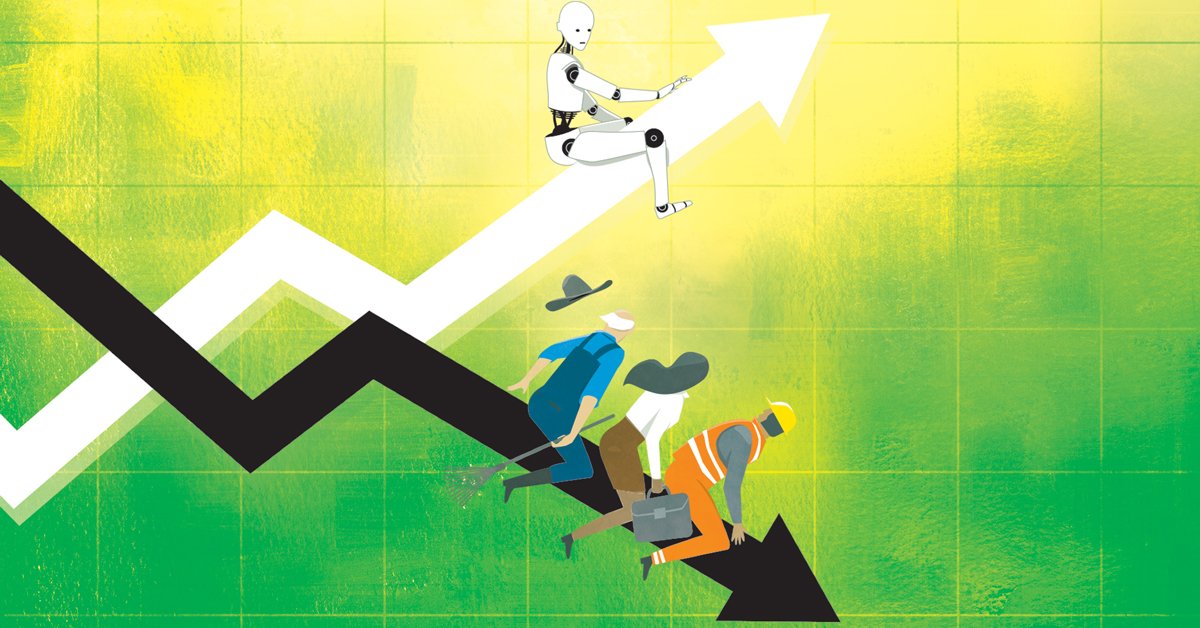Technologists like Elon Musk, Sam Altman, and Jensen Huang predict that artificial intelligence (AI) will have unprecedented economic impacts, with Musk even suggesting that AI could make human labor obsolete. However, many economists are less optimistic about the potential economic effects of AI. Tyler Cowen, Paul Krugman, and David Autor all suggest that while AI may boost the annual growth rate, the impact may not be as significant as technologists suggest. Anton Korinek, an economics professor at the University of Virginia, has also broken rank with his fellow economists by modeling what would happen if AI developed as many technologists predict.
Korinek uses economic methods to model a scenario where AI systems outperform humans at any task by the end of the decade. In this scenario, he paints an alarming picture of the potential economic impacts of AI, suggesting that widespread automation could lead to significant job displacement. While technologists are bullish on the potential for AI to create wealth and bring about a new industrial revolution, economists like Korinek are raising concerns about the potential consequences of widespread AI adoption.
Despite the predictions of technologists, many economists believe that the economic impacts of AI may be underwhelming. While AI may boost the annual growth rate, it may not lead to the massive job displacement that some predict. Economists like Tyler Cowen, Paul Krugman, and David Autor argue that the effects of AI on the economy may take longer to materialize than many people expect. While AI has the potential to change the way we work and live, the full extent of its economic impacts remains uncertain.
Korinek’s modeling of a scenario where AI outperforms humans at any task raises concerns about the potential consequences of widespread automation. He suggests that AI could lead to significant job displacement, with machines taking over tasks that were once performed by humans. This could have far-reaching implications for the economy, leading to changes in the distribution of wealth and power. While technologists are optimistic about the potential of AI to create wealth, economists like Korinek are highlighting the potential risks associated with widespread AI adoption.
In conclusion, while technologists predict that AI will have unprecedented economic impacts, economists are more cautious in their predictions. While AI has the potential to boost the annual growth rate and create wealth, the full extent of its economic impacts remains uncertain. Korinek’s modeling of a scenario where AI outperforms humans at any task raises concerns about the potential consequences of widespread automation. As AI continues to develop and be integrated into various industries, it will be important for policymakers, economists, and technologists to work together to ensure that the benefits of AI are shared equitably and that potential risks are mitigated.









